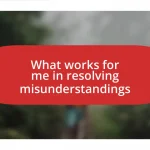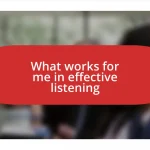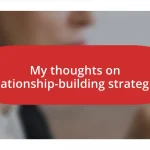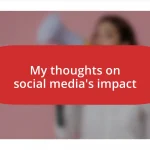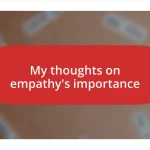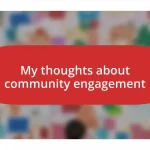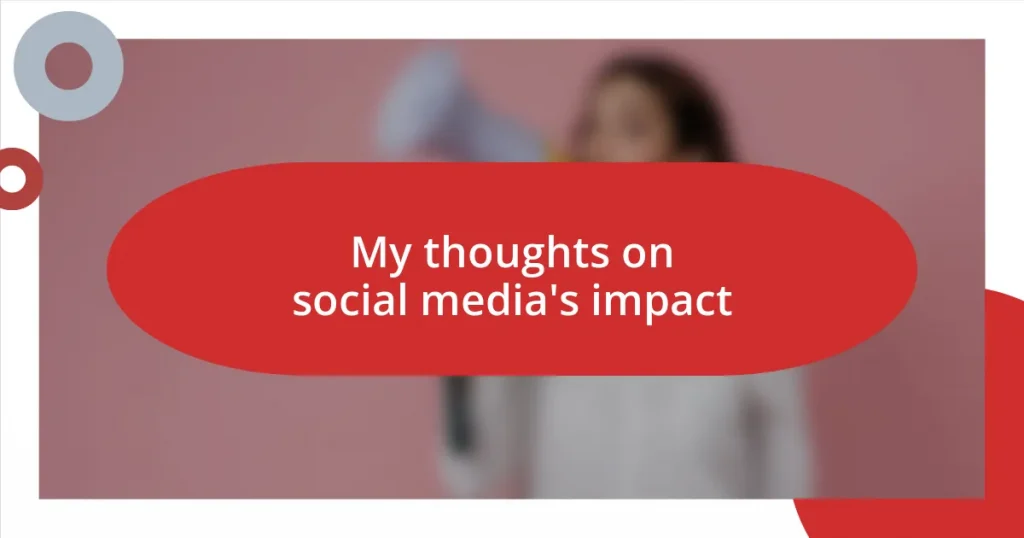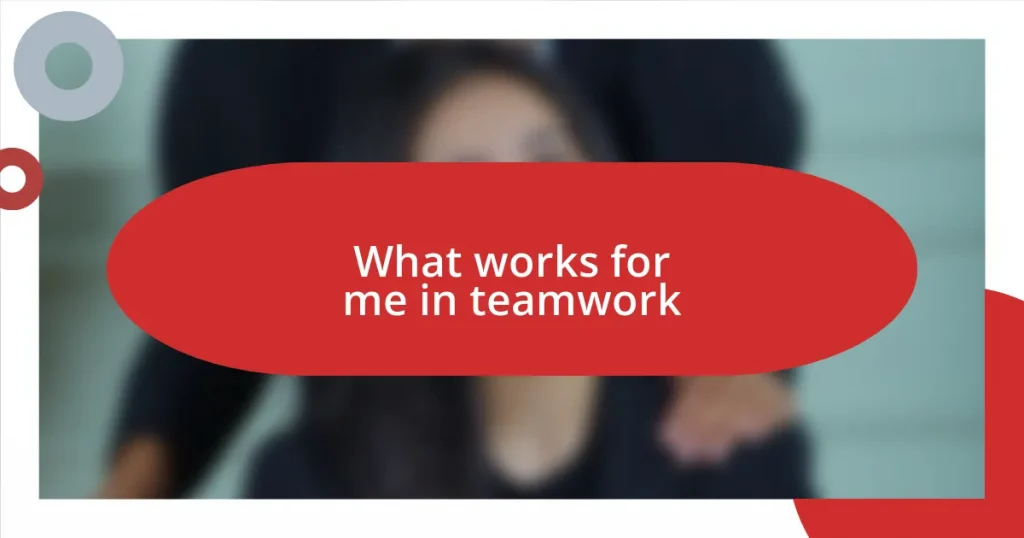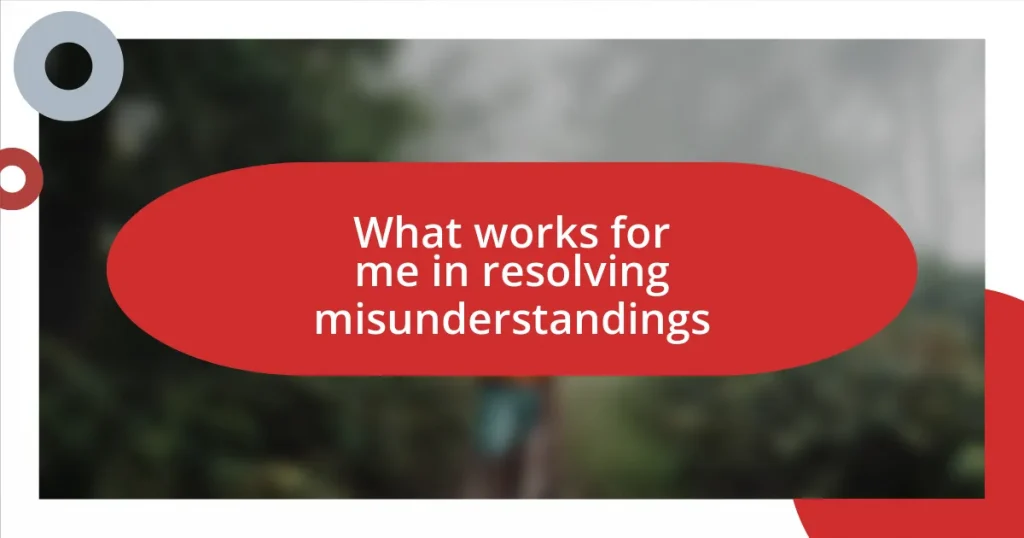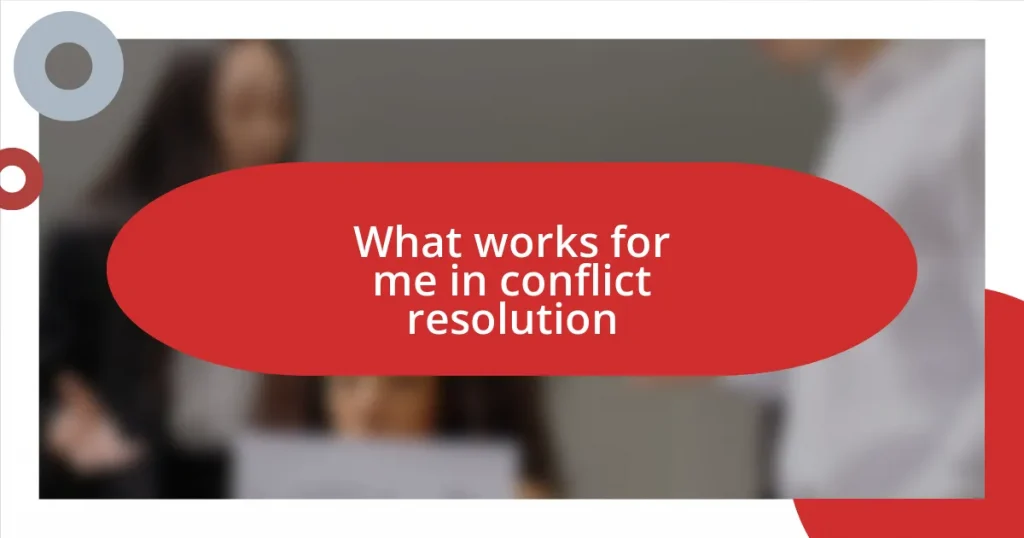Key takeaways:
- Social media influences lifestyle changes through emotional connections and shared experiences.
- Positive effects include fostering global connections, raising awareness for causes, and providing educational content.
- Negative impacts involve mental health struggles, misinformation, and privacy concerns, requiring mindful consumption strategies.
- Future trends may prioritize user privacy and niche communities, enhancing authentic connections and user engagement.
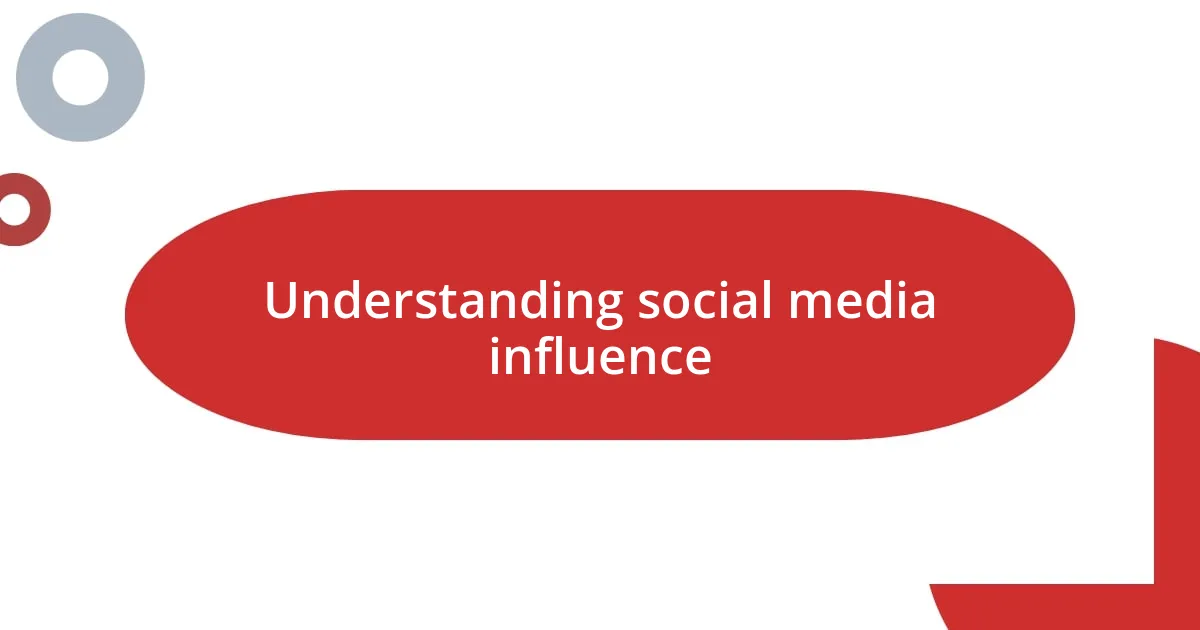
Understanding social media influence
Social media influence is a powerful force that shapes our daily lives, often in surprising ways. I remember a time when I stumbled upon a video that showcased a simple way to cook a healthy meal. It wasn’t just the recipe that intrigued me; it was the comments from people who transformed their eating habits due to that one post. Have you ever thought about how one piece of content can ripple out and alter someone’s lifestyle?
Moreover, the emotional connection we form with content can’t be overstated. I often find myself drawn to influencers who share their personal struggles; it’s a raw reminder that we’re not alone in our experiences. This emotional engagement invites a sense of community, making us more likely to adopt new perspectives based on what we see online. Isn’t it fascinating how our feelings can guide our decisions in such profound ways?
At the same time, the profound impact of social media can lead us down a path of comparison and self-doubt. I’ve caught myself scrolling through feeds filled with curated, seemingly perfect lives, which sometimes leaves me feeling inadequate. How often do we forget that most of what we see is just a highlight reel, filtered for public consumption? Acknowledging this distinction helps us navigate the digital landscape with a clearer mindset.
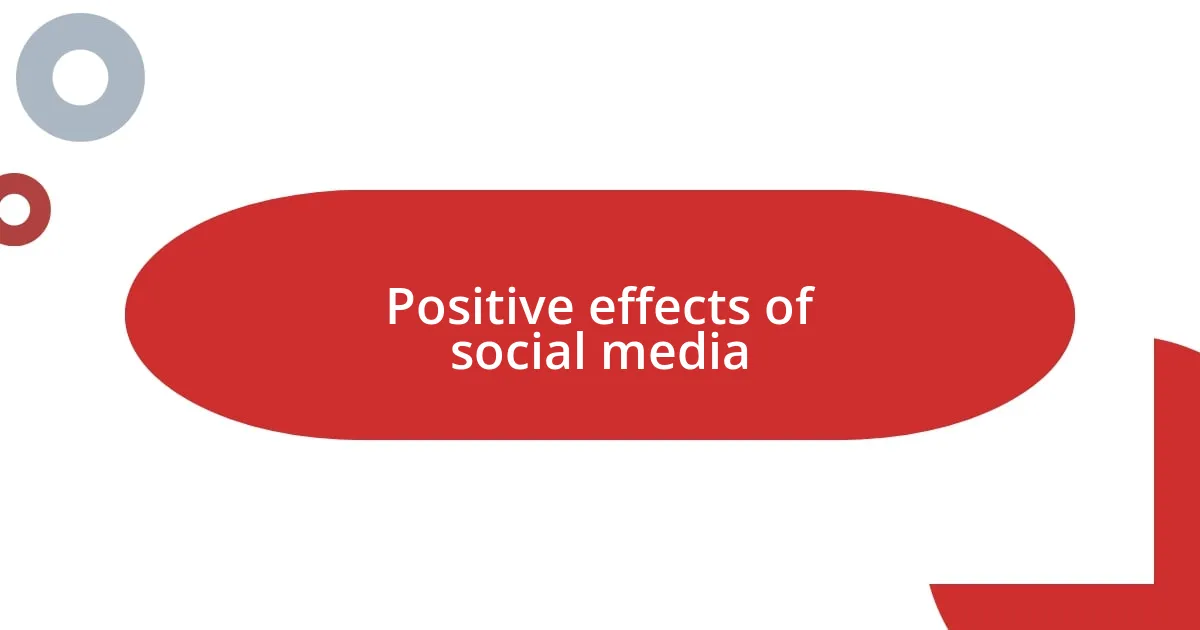
Positive effects of social media
Social media can foster meaningful connections across the globe. I recall a time when I joined a Facebook group focused on mental health. The sharing of stories and support from strangers who had faced similar challenges made me feel seen and understood. It’s incredible how such platforms can bridge distances, allowing us to connect with those we might never have met otherwise.
Another positive effect is the ability to raise awareness for important causes. I was inspired by an Instagram campaign that highlighted environmental issues, which prompted me to change my habits significantly. The collective voice of individuals can spark movements, mobilizing communities towards positive change. Have you ever considered how a single tweet or post can turn into a powerful call to action?
Lastly, the educational potential of social media cannot be overlooked. Just the other day, I stumbled upon a TikTok video breaking down complex science concepts in just a minute. I found myself learning something new that I could apply in real life. The accessibility of diverse content truly democratizes knowledge, making it easier for anyone to become informed and engaged.
| Positive Effects | Examples |
|---|---|
| Connection | Support groups, shared experiences |
| Awareness | Campaigns for environmental and social causes |
| Education | Informative content and tutorials |
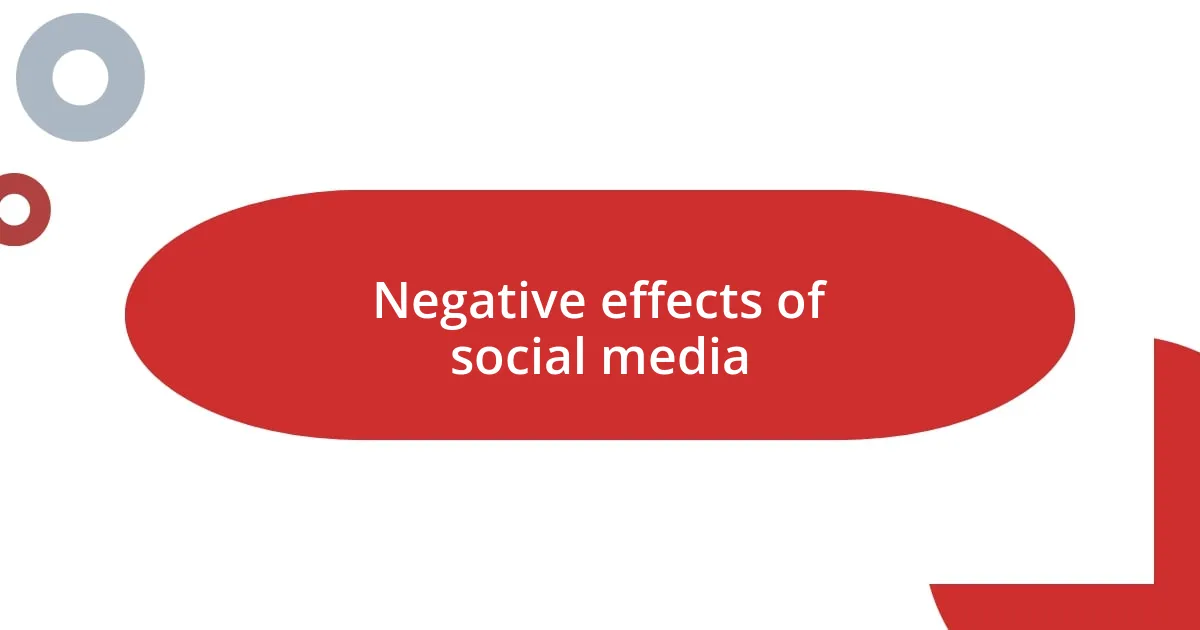
Negative effects of social media
Social media certainly has its underbelly of negative effects that we can’t ignore. I’ve spent evenings overwhelmed by negativity after getting caught up in toxic comment sections or heated debates. It’s an unsettling feeling, realizing how quickly a constructive conversation can devolve into hostility. Social media, intended to connect us, can sometimes create barriers that lead to isolation instead of understanding.
Here are some key negative effects to consider:
- Mental Health Struggles: Increased anxiety and depression linked to unrealistic standards and cyberbullying.
- Addiction and Time Waste: Hours spent scrolling can lead to procrastination and decreased productivity.
- Misinformation Spread: The rapid sharing of false information fuels distrust and confusion in real-world issues.
- Privacy Concerns: Many users unknowingly compromise their personal information, exposing themselves to potential exploitation.
- Distorted Reality: Continuous exposure to idealized images leads to unhealthy comparisons and low self-esteem.
When I reflect on these aspects, it’s easy to see how one can spiral into a cycle of negativity. It’s crucial to recognize when our social media habits affect our mental well-being. Setting boundaries or taking breaks, as I’ve learned to do, can be transformative, allowing for a healthier relationship with these platforms.
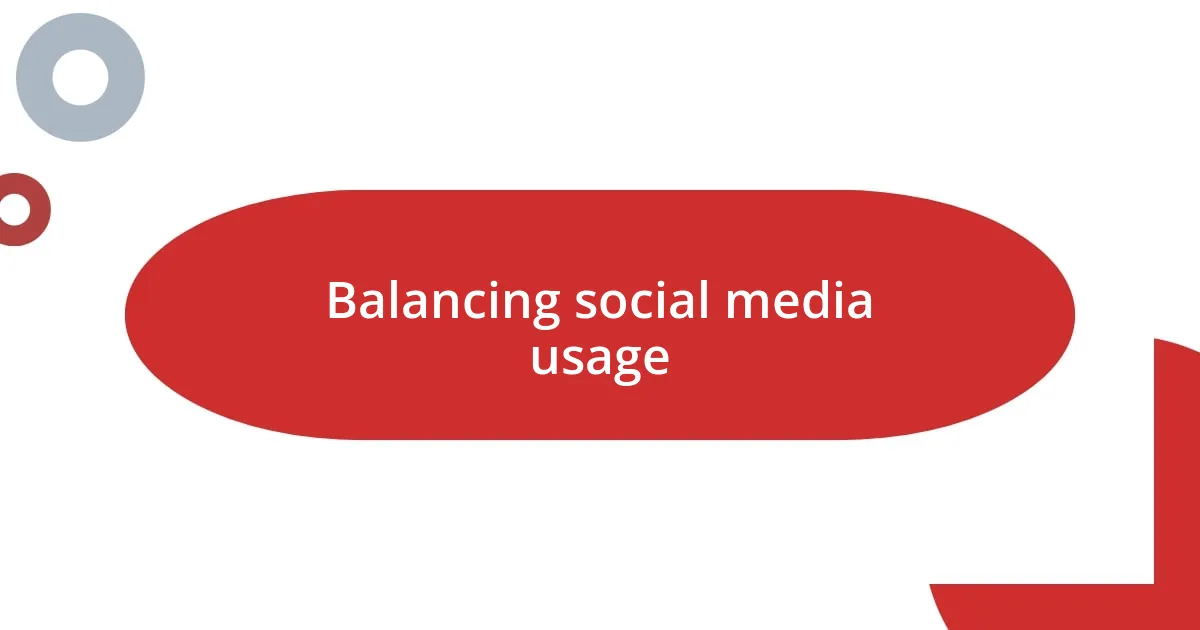
Balancing social media usage
Finding a balance in social media usage is something I’ve had to actively work on. I remember a particular week where I set a timer on my phone to limit my scrolling to just an hour a day. At first, it felt restricting, but I soon realized that rediscovering hobbies like reading or going for walks was like breathing fresh air after being underwater. Isn’t it funny how stepping back can help you appreciate life outside the screen?
It’s easy to get lost in the fast-paced world of likes and shares. I once found myself in a cycle of scrolling into the early hours, only to wake up feeling more drained. I can’t help but ask: how often do we confuse our online presence with our self-worth? Setting clear time limits and curating my feed helped me reclaim control and remember that my value isn’t defined by engagement stats.
I’ve also learned the importance of mindful consumption. A friend of mine decided to unfollow several accounts that stirred negativity in her life. She shared how refreshing it was to fill her feed with positivity and inspiration instead. Have you ever thought about how the content you consume might impact your mood? I’ve found that focusing on genuine connections and uplifting content transforms the experience entirely, making social media a tool for joy rather than a source of stress.
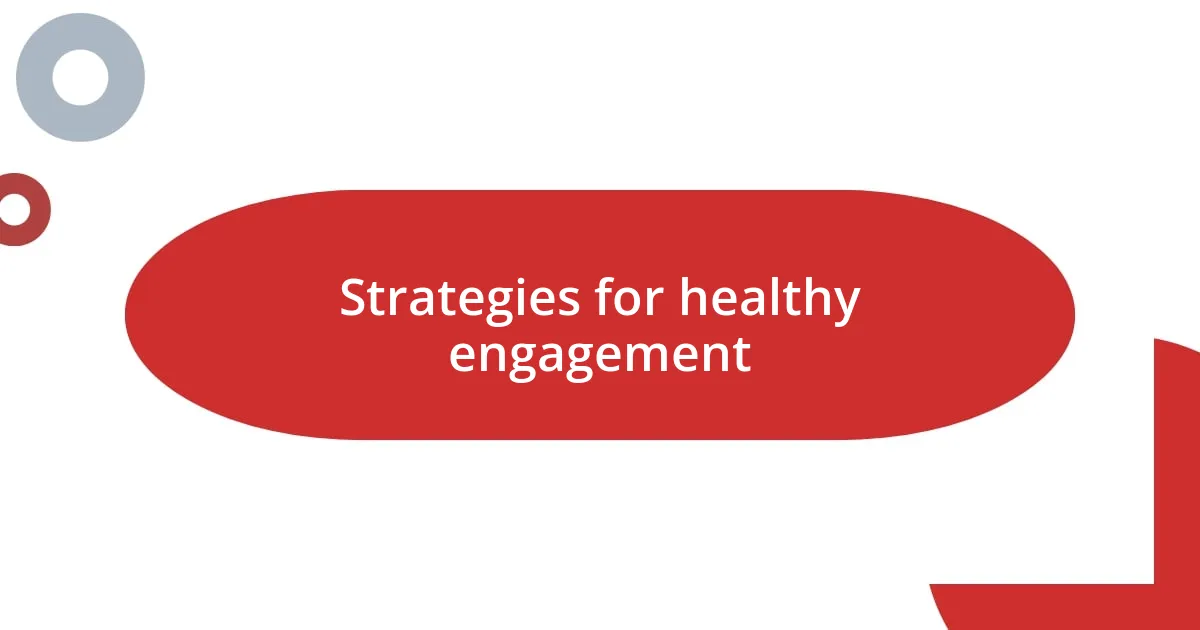
Strategies for healthy engagement
Strategies for healthy engagement can be a game-changer when it comes to social media. I’ve discovered that interacting with intent makes a significant difference. For instance, I now approach social media with specific goals in mind. Instead of browsing aimlessly, I focus on connecting with friends or learning something new. Have you ever noticed how goal-oriented engagement can shift your online experience from overwhelming to fulfilling?
Curating my social media feeds has also been vital for my mental health. I recall the moment I unfollowed accounts that triggered feelings of inadequacy, and I was amazed by the relief that washed over me! Instead, I sought out content that inspired me, like artists and activists whose work sparked joy and motivation. This simple shift made my daily scrolling feel like a delightful break rather than an exhausting chore. How do you feel after engaging with the content you see online?
Finally, taking regular digital detoxes has become a strategy I swear by. There was a weekend when I decided to unplug completely, and believe me, it felt liberating. Instead of fretting over notifications and updates, I immersed myself in nature and spent quality time with loved ones. I couldn’t help but wonder: what new joys could we uncover if we stepped away from our screens more often? It’s in those moments of disconnection that I’ve found greater clarity and appreciation for real-life interactions.
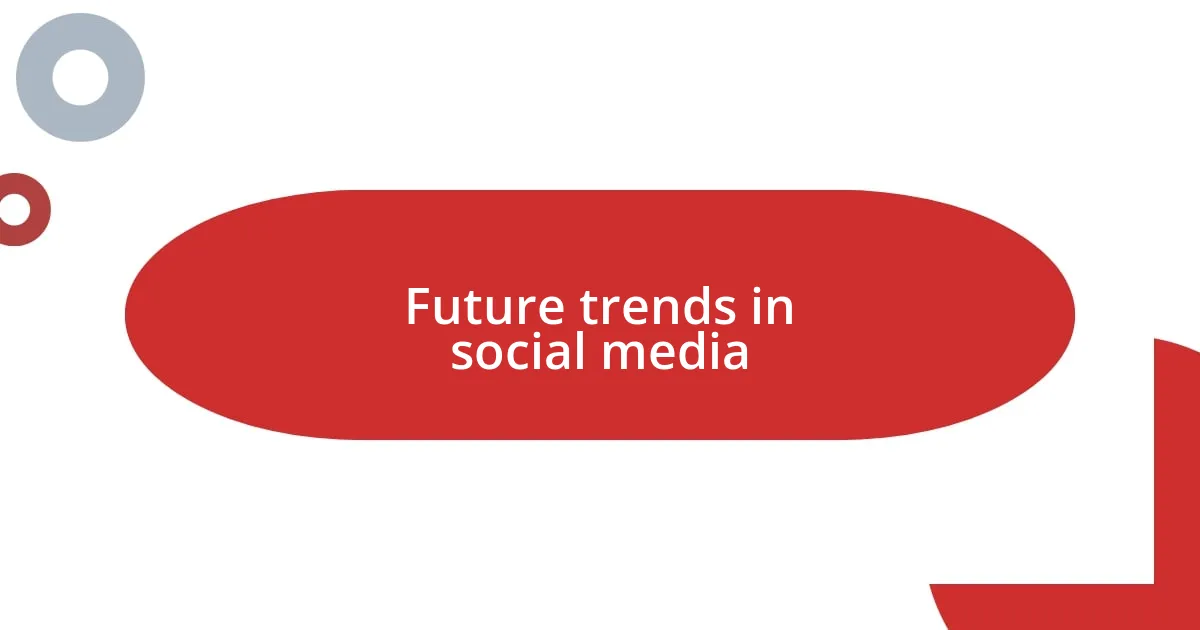
Future trends in social media
The future of social media is likely to be heavily influenced by evolving technology. I’ve been following the rise of virtual reality (VR) and augmented reality (AR), and it excites me to think about how they might transform the social experience. Imagine attending a concert with friends in a virtual world, feeling as if you’re right there together, even from miles apart. Doesn’t that spark your imagination about the possibilities?
As I look ahead, I can’t help but ponder the growing importance of user privacy and data security. I’ve witnessed countless conversations around these topics, especially after major data breaches made headlines. I believe that platforms prioritizing transparent user data practices will build stronger connections and trust with their audience. How can we engage with content if we don’t feel safe sharing our own?
In terms of trends, I see a shift towards niche communities gaining traction. More than ever, I’ve experienced the joy of connecting with people who share my interests—be it gardening, writing, or even niche fandoms. These smaller, focused groups foster deeper connections and discussions. Have you noticed how engaging with like-minded individuals can provide a sense of belonging that larger platforms often lack? It’s in these intimate spaces that I truly find my voice and feel valued.
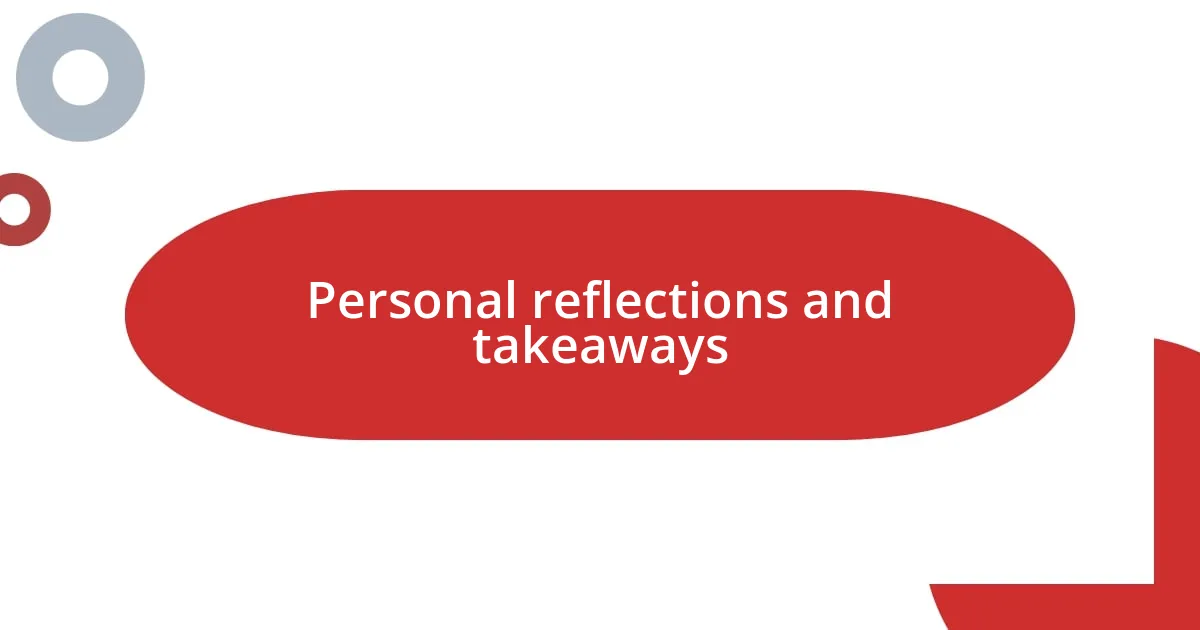
Personal reflections and takeaways
Reflecting on my own journey with social media, I’ve come to realize how profoundly it shapes my mindset. There was a time when scrolling through my feed felt like an endless loop of FOMO—fear of missing out. Now, I consciously remind myself that what I see doesn’t define my reality. How has your perspective shifted over time?
One takeaway that stands out for me is the power of authentic connections. I fondly remember a conversation with a friend I hadn’t seen in years, sparked by a shared post. It felt like a warm reunion, a reminder that social media can bridge distances rather than widen them. Isn’t it fascinating how a simple comment can reignite a meaningful relationship?
In my experience, it’s essential to balance online presence with genuine life experiences. After attending a local event that I discovered through social media, I found a community that values face-to-face interactions just as much as virtual conversations. Do you ever feel that tangible energy in real-life gatherings that online interactions can’t quite replicate? It’s a beautiful blend of both worlds that enriches my life.

